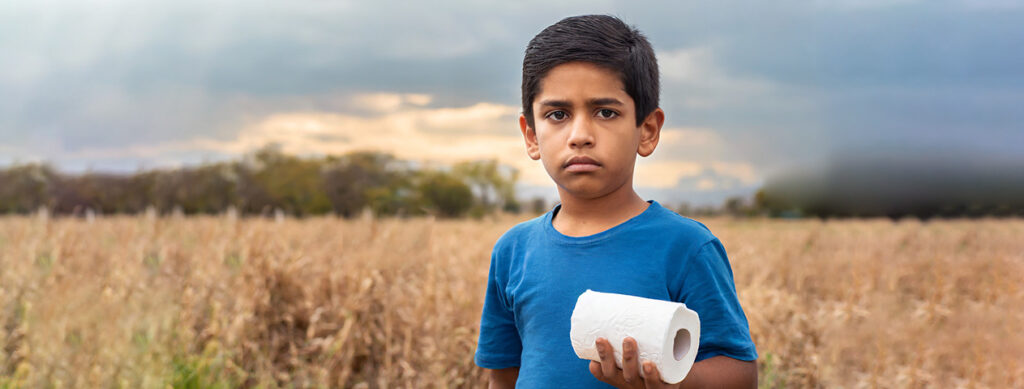Despite living in an increasingly globalized world with great technological innovations and scientific discoveries, complete and quality access to sanitation services continues to represent a constant problem in much of the world, particularly for vulnerable groups in rural areas, and Bolivia is no exception. This reality affects populations not only at a health level, but also compromises their dignity and humanitarian well-being.
Today on World Toilet Day, let's explore how the lack of access to adequate sanitation affects these communities, and how by collaborating together we can generate the change that Bolivia needs.
How did World Toilet Day come about?
On July 24, 2013, the United Nations General Assembly determined that World Toilet Day would be celebrated every November 19 in order to accelerate action towards sanitation in a world full of contrasts, determining a main theme for each anus. which this year was determined to "Accelerate change."
10 years after the first World Toilet Day, unfortunately its relevance remains vital. According to figures from WHO and UNICEF, there are currently 3.5 billion people still living without safe toilets, 2.2 billion do not have safe water and 419 million people still practice open defecation; causing the death of 1,000 children under five years of age every day due to the spread of disease.
Bolivian sanitation panorama
As we mentioned previously in the Inter-American Water Day, the Bolivian groups most vulnerable to the risks posed by a poor sanitation system are children located in rural areas of the country, where access to drinking water is only available in 67.5% of the population, a situation that worsened by September of the year ongoing with at least 290 municipalities declaring a state of emergency due to prolonged droughts.
Likewise, over time, Bolivia has been one of the countries with the highest rates of open defecation, and although year after year the number of people who carry out this practice has decreased, it is still considered a serious problem at the rural level. , since the 32.7% of this segment continues in this situation (UNICEF, 2020).

Being a girl without sustainable sanitation
The consequences of this crisis represent a threat to nature and everyone's health, particularly for girls in their student years, since, due to the lack of availability of water and poor sanitary infrastructure, they stop attending school when they arrive. their menstrual period, altering their development and dignity in addition to exposing them to the probability of contracting an infection or disease.
Bolivia, united in action
This year, the insignia of this commemoration is a Hummingbird, based on an ancient legend about this bird putting out a fire by carrying water with its beak. This great analogy shows that, in addition to the actions of large organizations, the contribution as individuals can make a difference in support of our Bolivian brothers. Some of these actions may be:
- Breaking taboos: Talk about the critical connection between baths, water and menstruation.
- Safe Discharge: Repair water and sewer pipe leaks, empty full septic tanks, and report sludge discharge.
- Stop polluting: Do not throw food waste, oils, medicines and chemicals down the toilet or drain.
- Build pressure: Write to elected representatives about budgets to improve water and sanitation at home and abroad.
Don't be left behind in this fight against poor sanitation in our beautiful Bolivia. Find out a little more on the official World Toilet Day page and stay tuned for the initiatives that Water For People promotes to raise awareness, such as our documentary "A Step Towards Dignity", which we created in collaboration with Kimberly Clark and Discovery Channel to expose this problem and thus motivate change with cooperation and empathy.
